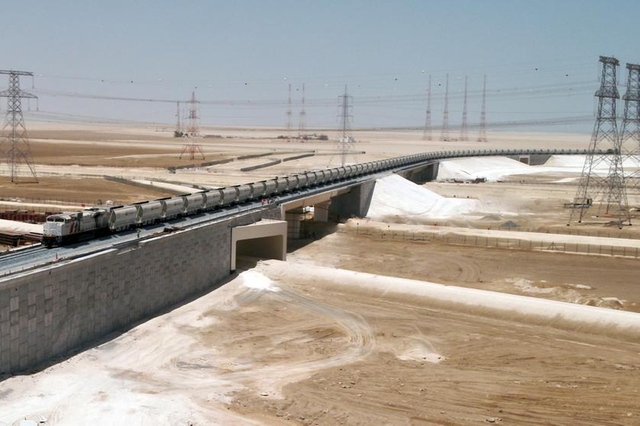Etihad Rail announces connection of ICAD freight terminal

Etihad Rail announces connection of ICAD freight terminal. This terminal is now connect to the national rail network, the company said.
nfl store
sex toys for sale
nike air max 270 sale
wigs for women
team uniforms
nike air max shoes
adidas factory outlet
nike air max sale
best sex toys
cheap wigs
custom jerseys
basketball jeresys custom
baseball jerseys custom
sex toy store
Human Hair Wigs
nike air max 90
Etihad Rail has announced the connection of its freight terminal at the Industrial City of Abu Dhabi (ICAD) to the network’s main line.
According to the company, the new line, which connects the port of Fujairah with the Saudi Arabian border, has completed with tracklaying and successful tests.
The new2.7 million sq.ft.hub will handle over 20 million tons of bulk, containerized, and general cargo annually.
The railway program aims to connect the country’s key centers of industry and production, open new trade routes and facilitate population movement, Etihad Rail said.
The executive director of rail relations, Mohammed Marzouqi, said: “We are proud of this achievement, which supports our efforts to encourage companies to restructure their logistics operations and opt for rail logistics solutions, which reduce costs, improve efficiency, and make goods travel safer.
“This is exemplified by the trade agreements that we have made with some of the biggest companies in the UAE, such as Stevin Rock LLC, Western Bainoona Group, and Al Ghurair Iron & Steel LLC.
“Our network will positively impact end users, as it will contribute to reducing trucks on roads and bring down their maintenance costs. It will further drive the sustainable development that we are witnessing across the UAE, by enabling a positive socioeconomic impact on the industry, commerce, the environment, and more,” he added.
The new railway freight terminal will operate 24 hours per day, seven days per week, and at total capacity will process more than 15 million tonnes of loose raw materials, 1.5 tonnes of general cargo, and around 116,600 20-foot shipping containers annually.
The latest phase is part of Stage Two of the national railway network, which will eventually integrate ports, manufacturing hubs, and urban centers.


